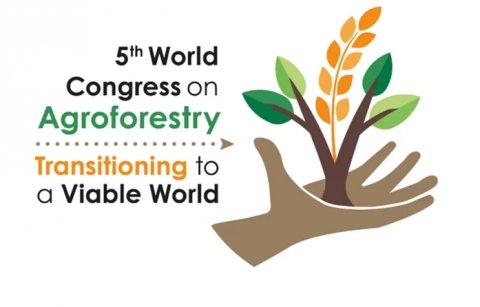Beluga whales, kombucha, astonishing farming diversity and brilliant scientific insights? Yes, it must be the World Congress on Agroforestry!
The first post-pandemic Congress of our community took place from 17th to 20th of July in the wonderful city of Québec, the only place in North America that reminds me of Europe. As you can expect, it was a scene of much rejoicing as old colleagues embraced for the first time in years and freshly minted PhDs, eyes ablaze at the diversity of the science, hungrily went from poster to poster. The celebrations were only slightly marred by the profound incompetence of the Canadian Ministry of Foreign Affairs, which failed to deliver visas to almost 200 colleagues from around the tropical and subtropical world. I am not sure why some particularly obtuse bureaucrats felt that, for example, the regional director of a major research organisation may abscond on her visa for the dubious pleasures of cleaning toilets in Canada, but it is what it is.
As we all know, 2022 is the year of the three COPS: for desertification (UNCCD, Abidjan), biodiversity (UNCBD, Montréal) and climate (UNFCCC, Sharm-El-Sheikh). This made the Agroforestry Congress both more important and more interesting: a lot of the science that I could witness directly addressed the difficult question of how to combine an increasingly brittle and destructive food system with the imperious necessity of restoring our lands and soils, dealing with global heating and protecting our biodiversity. Accordingly, some of the most fascinating plenary talks came from seasoned researchers who have spent their careers understanding the interplay of myriad factors on the complex systems humanity so easily impacts. The discussion of humanity's war against trees sketched out by Rodolphe de Koninck, a Professor emeritus at the Université de Montréal, in his plenary speech was as fascinating as Fergus Sinclair's reminder of the myriad ways in which both physical, social, economic and even aesthetic factors come into play in a proper understanding of agroecology, while Tony Simons reminded us that while we all blithely talk about agroforestry, we have so many widely different definitions of what it might be that the concept itself risks being devoid of any solid meaning - a conclusion that reminded your correspondent of Justice Potter Stewart's famous ruling that "I know it when I see it" (look it up).
The conference was all about "transitioning to a viable world" - which, considering the alarming and widely shared underlying assumption that we are now on a hiding to hell, did not seem to generate undue depression amongst the participants. Logically enough, a lot of the side sessions had titles like "transitioning to healthy soils", "transitioning to biodiversity", or "transitioning to a viable climate". What these special sessions confirmed is the vigourous health of the agroforestry research community: a remarkably large number of insightful talks and presentations rekindled your correspondent's hope that we can, indeed, transition to a viable world. All we have to do is make it happen.
The Congress also saw the General Assembly of the International Union of Agroforestry, which renewed its board (yes, the rumours are true: I'm its new President), and decided that the next world Congress, in 2025, would be held in Kigali, Rwanda. Patrick Karera, the Permanent Secretary of Rwanda's Ministry of the Environment, promised visa-free travel or visas on arrival for almost any passport on earth, eliciting a standing ovation from the audience.
The field trips allowed us to discover how lush the québécois landscape can be in summer, and how innovative farmers are harnessing it to make a good living without damaging their soil in the very short growing season Québec's harsh climate imposes. With the organisers kindly offering the opportunity of rounding things off with a whale watching boat cruise, there is only one criticism that I would make: the Congress should've been longer.
Patrick Worms












